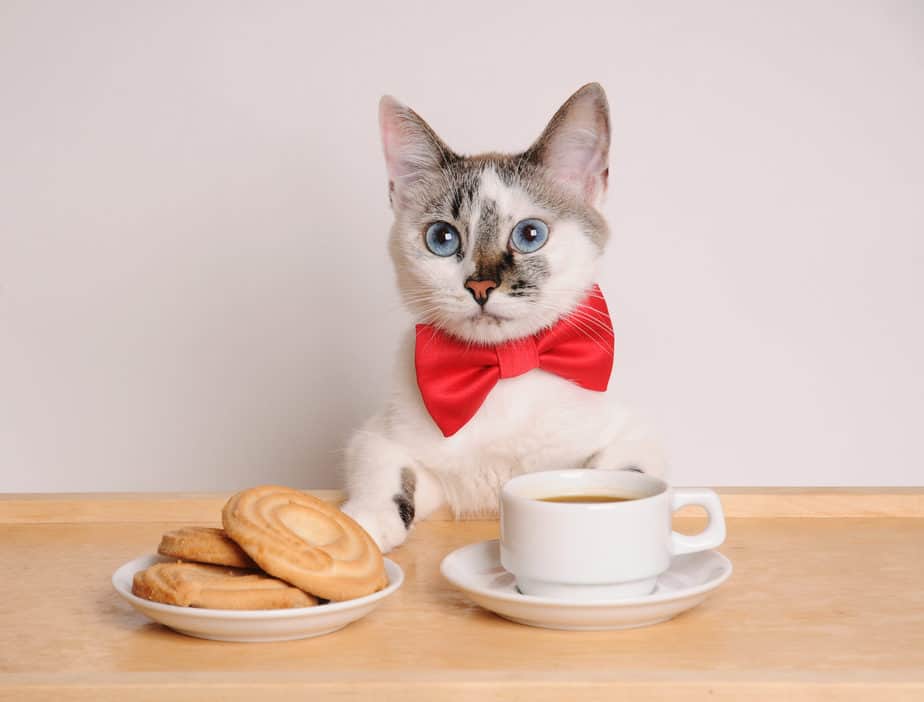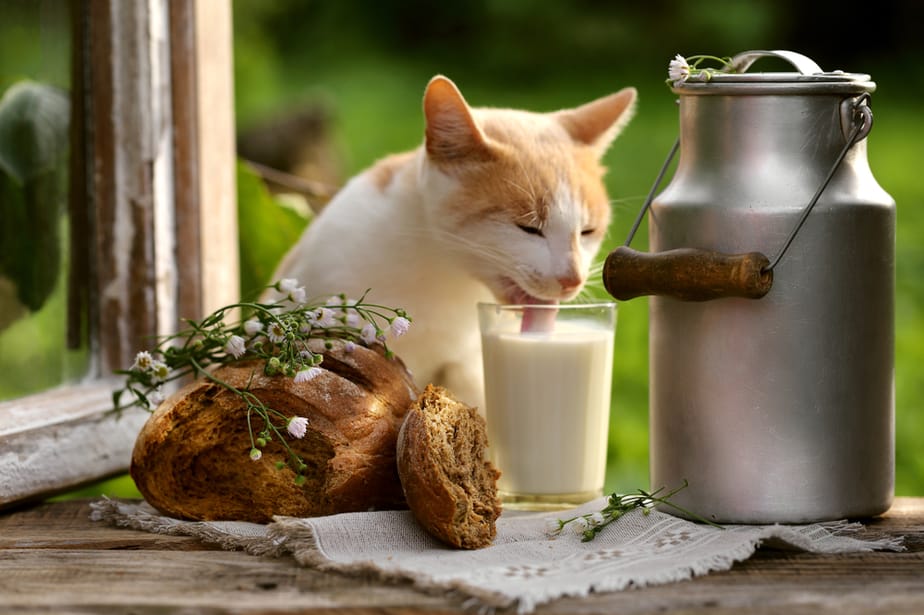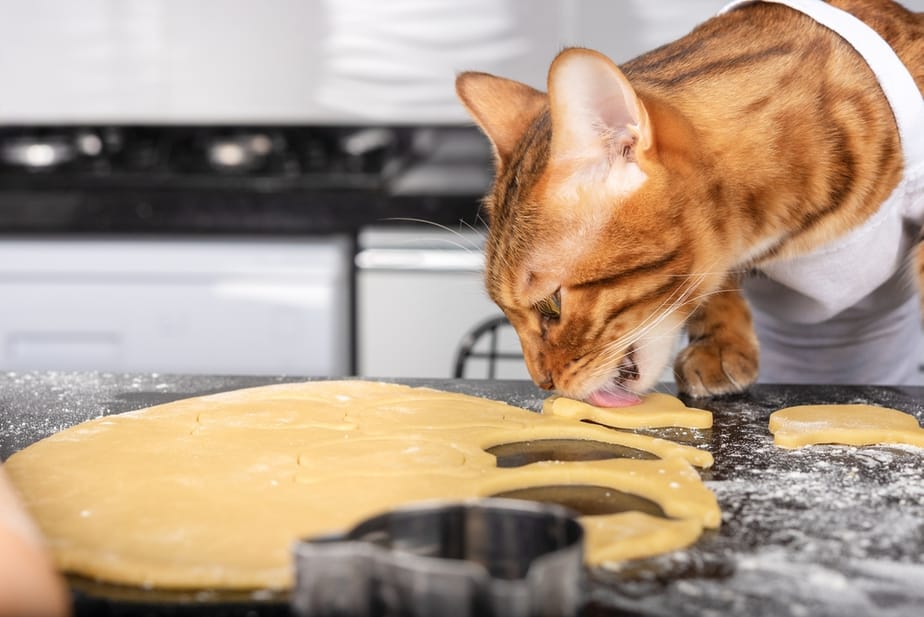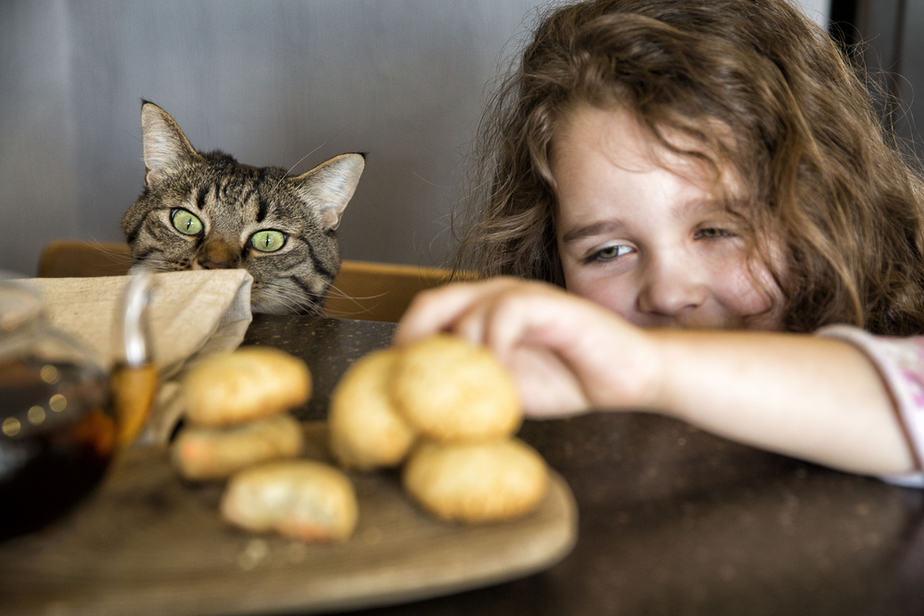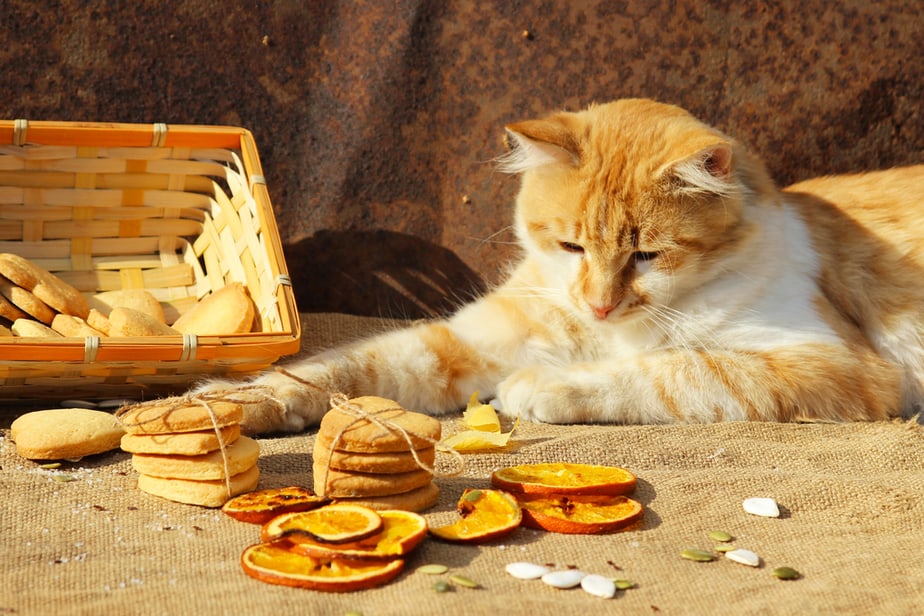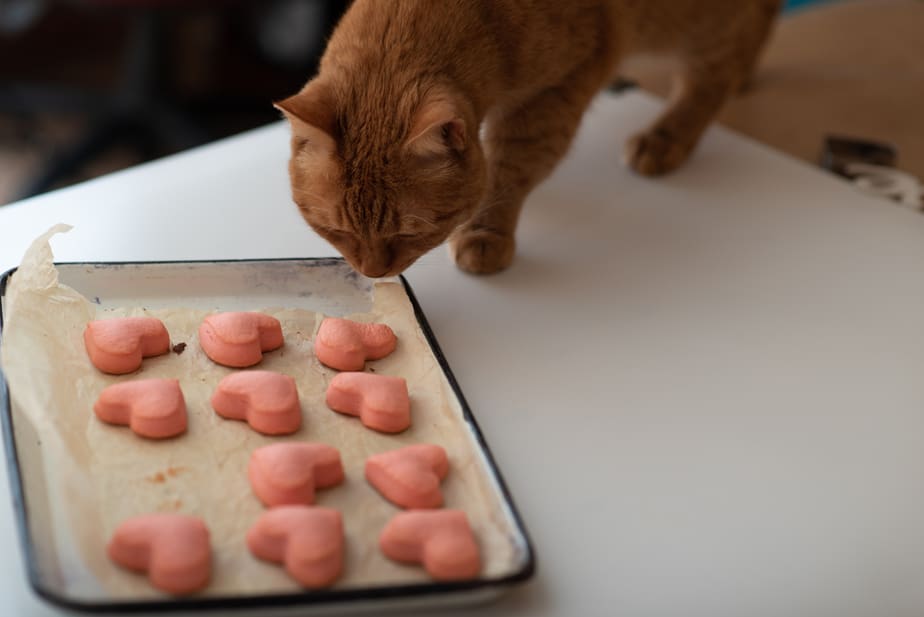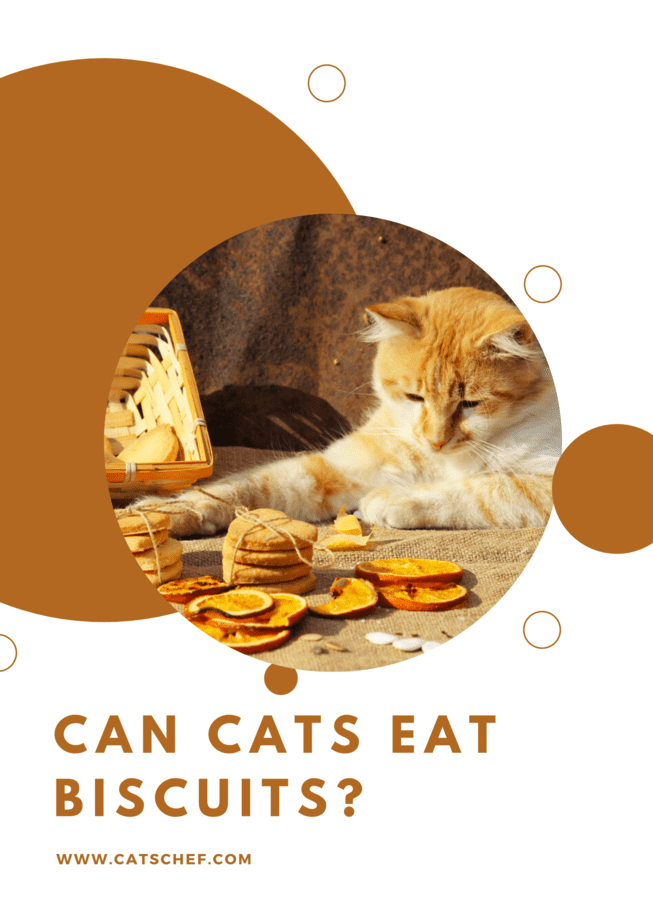📖 Table of Content:
We know how hard it can be resisting sharing food with your lap monster. Their purrs and pleading eyes are on another level of manipulation! So, let’s try to get to the bottom of whether cats can eat biscuits by focusing on some of the main ingredients.
What are biscuits made of?
These treats are a great complement to a cup of tea. Very posh, right? Biscuits, cookies, crackers, and other similar types of baked goods find themselves on our table often.
They’re easy to make and a great homemade treat. And they’re available everywhere. The world is full of biscuits and let’s see whether we should worry because of that.
Cats are known for their picky eating habits, but are there some human foods that spike their interest? Sure!
However, any large amounts of biscuits and other baked goodies aren’t welcome. Cats can eat biscuits, but only occasionally. These treats are made of flour, baking powder, salt, sugar, milk, and butter.
Some of these ingredients may not be very appreciated by your cat’s stomach. The reason for this would be that some of these are indigestible by felines.
1. Flour
This ingredient won’t harm your furbaby as the flour content in cookies is in no way a danger to cats. However, you should never offer your kitten raw flour. What isn’t safe for you probably won’t be safe for her either.
Even though it’s not poisonous, flour holds no nutritional value to cats. Plant-based ingredients such as this won’t be of use to your pet.
2. Milk and butter
These two ingredients, found in biscuits and the majority of baked goods, are dairy products. This means cats have a hard time digesting it. And when digestive problems occur, diarrhea, vomiting, and bloating can be expected.
The reason for this is the sugar in dairy products called lactose. Hence the term lactose intolerance. It occurs when felines lack the intestinal enzyme, namely lactase, that is responsible for digesting milk-derived sugar.
Butter does contain less of this sugar and won’t immediately harm your cat. However, raw butter shouldn’t be given to cats due to its high fat content.
3. Baking powder
Baking powder is harmless to cats, but where’s their need for this ingredient? All ingredients and foods that aren’t made for feline consumption should be taken with precaution.
If your fluffball accidentally licked some of the baking powder, there’s no room for panic. Yet, regular intake of this ingredient will not go in favor of your cat. Any large amount of this could send your feline to the ER. Thankfully, it’s uncommon that cats are drawn to this product.
4. Salt and sugar
This can be tricky. Small portions of these two ingredients in everyday cat food are inevitable and negligible. So a few biscuit crumbs from time to time is safe, but anything more than that is asking for trouble.
The sodium content in salty biscuits can be dangerous to felines. If she takes a liking to these baked goods, be sure to prevent her from indulging in them.
Overconsumption of salt can lead to sodium toxicity in felines – and it takes as little as one teaspoon to cause this! Watch out for any symptoms of sodium toxicity such as vomiting, diarrhea, tremors, or even coma!
When it comes to sugar, there are no exceptions. Sugar in small amounts may be tolerated, but if you care about your floof, you’ll avoid it. In the long term, sugar intake can cause dental problems. And tooth decay in felines is no joke, as they are carnivorous, so they rely heavily on their “weapons.”
Other long term problems include obesity, which in turn affects cats’ overall health, especially in the bones and joints. Felines are bouncy animals and they are active, especially when hunting – all the running, jumping, and climbing. Imagine what added pressure on her joints must feel like!
Just like humans, cats can develop chronic diseases, such as diabetes. For these reasons alone, make sure to keep your kitty away from high quantities of sugar. And no, there is no excuse for this because cats actually don’t enjoy the sweet taste.
They are incapable of enjoying the sweet flavor because they lack the taste buds that would allow them to. This is a good thing because sugar and sweets are bad for felines.
Different flavored biscuits
Biscuits are usually sweet, flat, baked products. The good thing is they are made without any leavening agents. These are known to make your kitten bloated. While a few bites from time to time won’t ruin your tea party, be careful though.
Biscuits and cookies come in various shapes, sizes, and flavors. Whereas the majority are sweet, some can be made with chocolate.
Can cats eat chocolate chip cookies?
Unfortunately, the answer is a hard no. As the name implies, chocolate chip cookies contain chocolate. This ingredient makes it inedible to cats. Chocolate is a great health hazard to felines.
If your cat gets her paws on it, you shouldn’t panic immediately. However, a few bites can be dangerous. Chocolate is poisonous to cats and the fact that it’s found everywhere is a terrifying thought.
This sweet treat contains the compounds theobromine and caffeine. These two, if found in your cat’s body, will make a ruckus. In short, this means chocolate can be lethal to cats.
Ginger and cinnamon biscuits, are they safe for cats to eat?
Ginger is great for humans as it can help with stomach problems. Good news is that ginger is safe for cats, too. Small amounts in biscuits are perfectly good to share with your furry companion.
However, don’t get ahead of yourself. Nibbling on these biscuits here and there should only serve as an occasional treat. Excessive amounts could lead to stomach upset.
When it comes to cinnamon, though, keep your four-legged friend far away from it. It’s possible you don’t need to tell her twice. The smell of cinnamon is usually too strong for cats’ liking. This is why cinnamon is used as a natural cat repellent as well.
High levels of coumarin – a compound found in cinnamon – can harm your feline. Coumarin can cause liver damage, increase the risk of cancer, and lead to breathing problems.
It’s also not uncommon for cats to develop allergic reactions to cinnamon. If your furry devil has eaten any cinnamon-flavored biscuits, look out for some common allergy symptoms. These include rashes, a cough, and skin irritation.
To sum up, ginger-flavored biscuits are safe in small portions. But, make sure to stay away from cinnamon biscuits. You never know when these allergies may pop up.
Cookies, crackers, biscuits – which ones are safe?
It seems all of these are the same, right? They all fall under the same category as biscuits. However, the slight difference is in flavor and texture.
Biscuits are light and have less sugar than cookies, for example. Cookies are usually soft on the inside and more flavorful. Crackers, on the other hand, are very simple and often come sugar-free.
If you’re adamant about letting your lap monster sample what you’re eating, you should look for some flavorless biscuits that are safe to share with her. Try to keep her greediness at bay so this pleasure doesn’t take a turn for the worse.
If ever deciding on one of these, opt for crackers. They are less likely to cause problems in your cat’s digestive system.
Read more: Can Cats Eat Croissants? Is This What Your Cat Wants?
Final verdict
Cats can eat biscuits – occasionally. Whether it be a private tea party for you and your fluff or a movie night. Make sure you buy ones that have less flavor, and avoid chocolate or cinnamon ones.
These two flavored biscuits can result in various medical conditions, from an allergic reaction to death. What’s on the human market isn’t automatically safe for our beloved pets.
Also, see if you can find any bland ones, without sugar or salt. In the long run, your cat will be thankful for your mindfulness. And you’re able to make some homemade sugar-free biscuits, good for you both!
Read more: Can Cats Eat Banana Bread Or Is It Too Risky?
